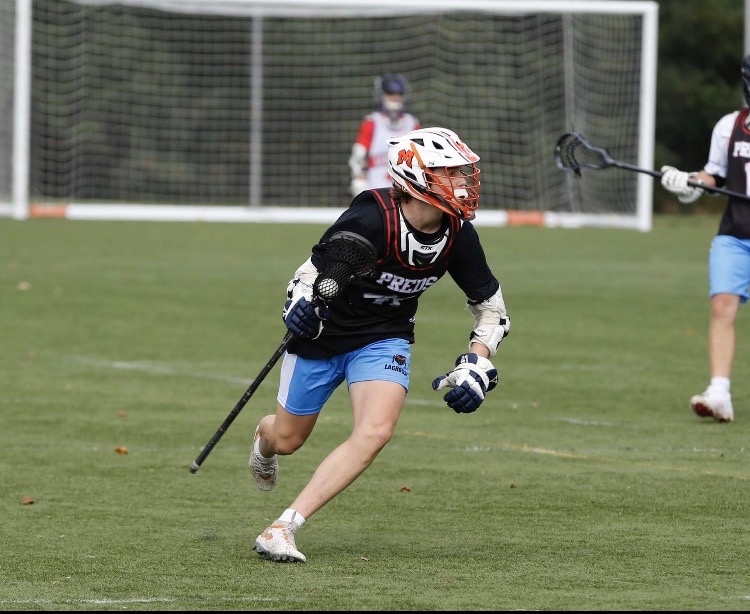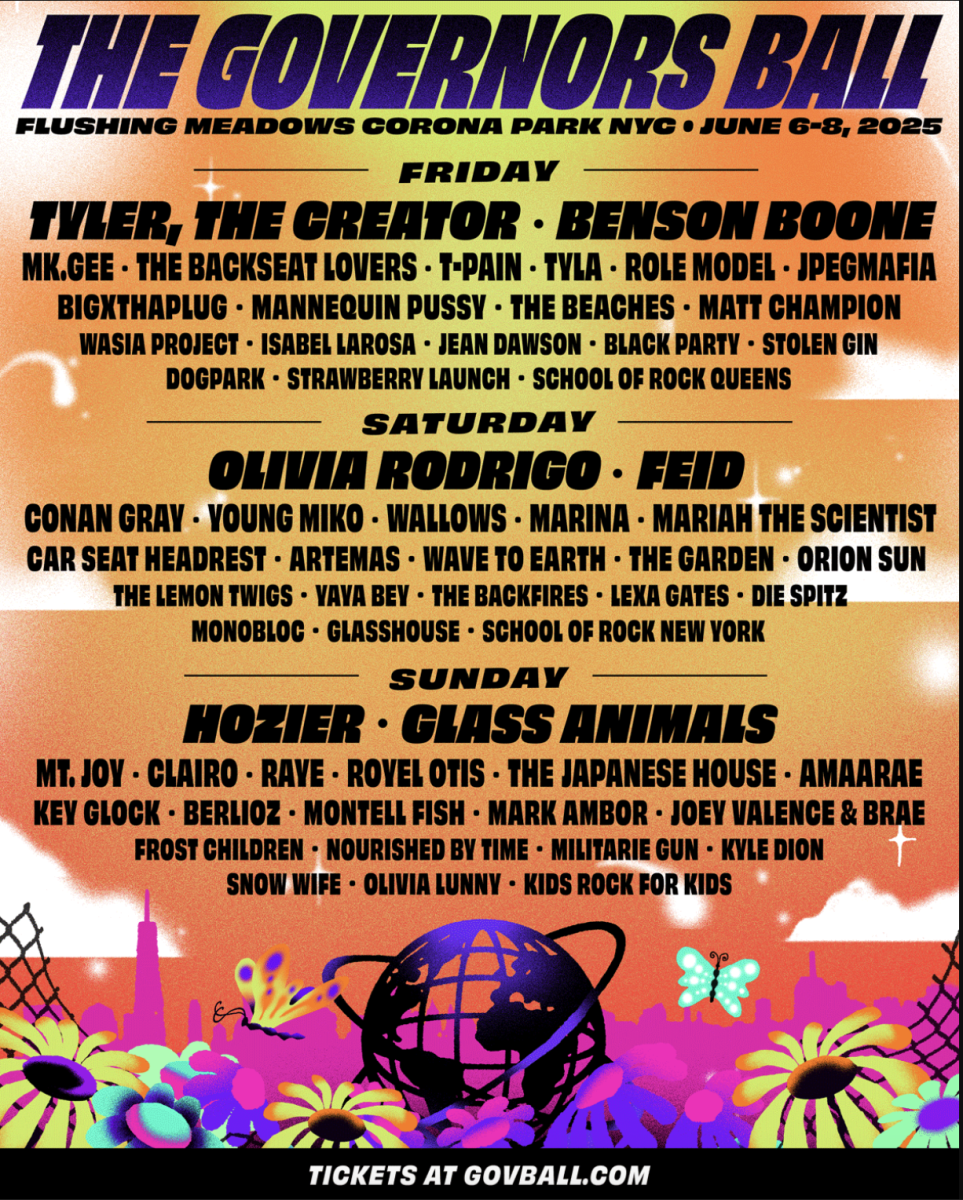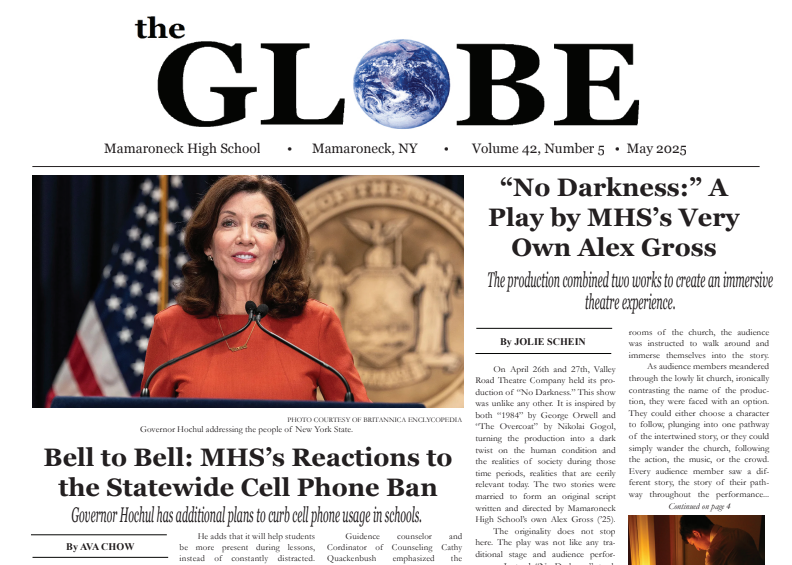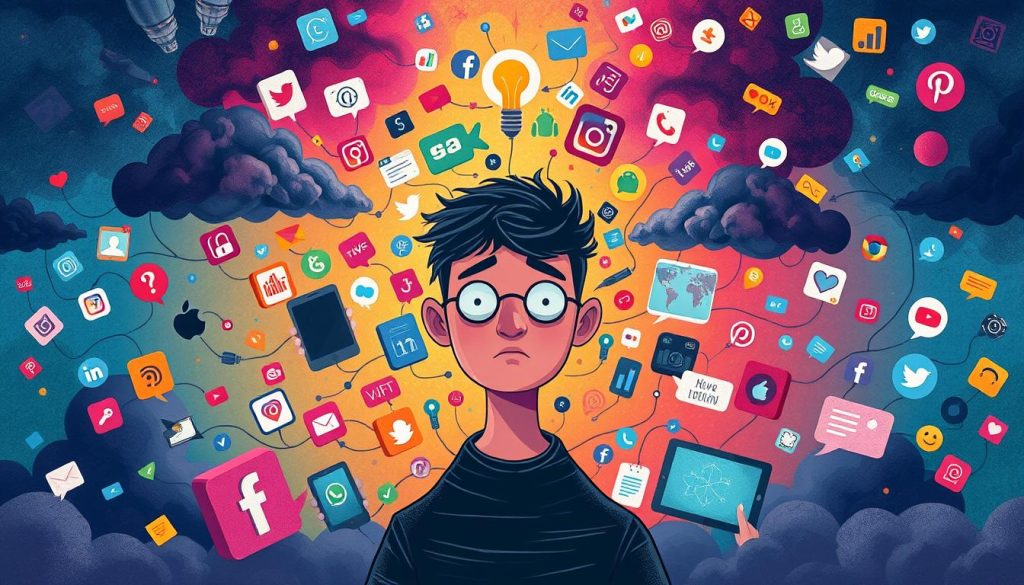How MHS Athletes are Recruited During COVID-19
What does college recruitment look like in a time of social distancing and cancelled games?
Alex Martin bolts down the field in a lacrosse game.
November 11, 2020
Covid-19 has drastically impacted the recruitment of high school athletes. Athletes who play spring sports have had their previous season canceled. Prospective college athletes have faced a much more difficult decision in choosing a school. The “dead period,” in which coaches are not allowed to recruit or talk to athletes, usually lasts from February to July. However, athletes still can not get a tour of campus or meet in person with their prospective coaches. Athletes can meet virtually with coaches and can receive a virtual tour of different schools. The already complex process of recruitment has become a nightmare for prospective college athletes.
Alex Martin, a junior at Mamaroneck High School, recently went through this challenging process and is now committed to play lacrosse at the University of Pennsylvania. Martin stressed the importance of meeting a coach, saying, “I think having a coach who will teach you how to be better on and off the field is maybe the most important part of my decision.” He explained how even though athletes couldn’t meet with coaches, they could let them know when and where their games were. Coaches, without interacting with the players, were allowed to attend. Martin thought “it was hard to really get to know schools with it being impossible to visit campus.” However, Martin was still able to walk around Penn’s campus. “A week past (visiting), I had a zoom call with the whole coaching staff and thought I was finally comfortable with making a decision.” Martin will be suiting up for the Quakers in the Spring of 2023.
Amanda Zerbib, a senior at Mamaroneck High School, recently committed to the early application process at Bates. With showcases and in person visits canceled, Zerbib noted how it became much more difficult for both coaches and players to get to know each other. She explained, “I couldn’t work with the coaches in person, walk around the campus to feel the atmosphere when there are students there, and get to know the team.” However, between phone calls with other students and touring empty campuses, Zerbib says she “was able to piece together what I heard with what I saw to determine if I felt comfortable and could envision myself there.”
David Josephson, the offensive coordinator of the football team at Johns Hopkins, explained how he has been recruiting during Covid-19. He says, “For the young men/women who are playing this fall…the timeline will be normal.” This means that he will recruit athletes that are playing this year in January and February after the season. However, for students that have had their season canceled, Josephson has already started recruiting. “There is no (new) film to generate more interest / offers. For this reason, decisions are being made now…” The program has added a virtual tour of the college and the football facilities for prospective athletes. While Josephson has been able to Zoom with recruits and their families, he admits that it has been difficult to evaluate players solely on film. He explains, “We cannot just compare one highlight tape to the next and know which player is better. A less productive player on film in the biggest league in Texas may still be a better prospect for us than the best player from a small league in Oregon.”
These unprecedented times have created new challenges for both coaches and players. It is evident that both parties are working to make the best of their respective situations, and hope that we can soon revert to the standard process.






